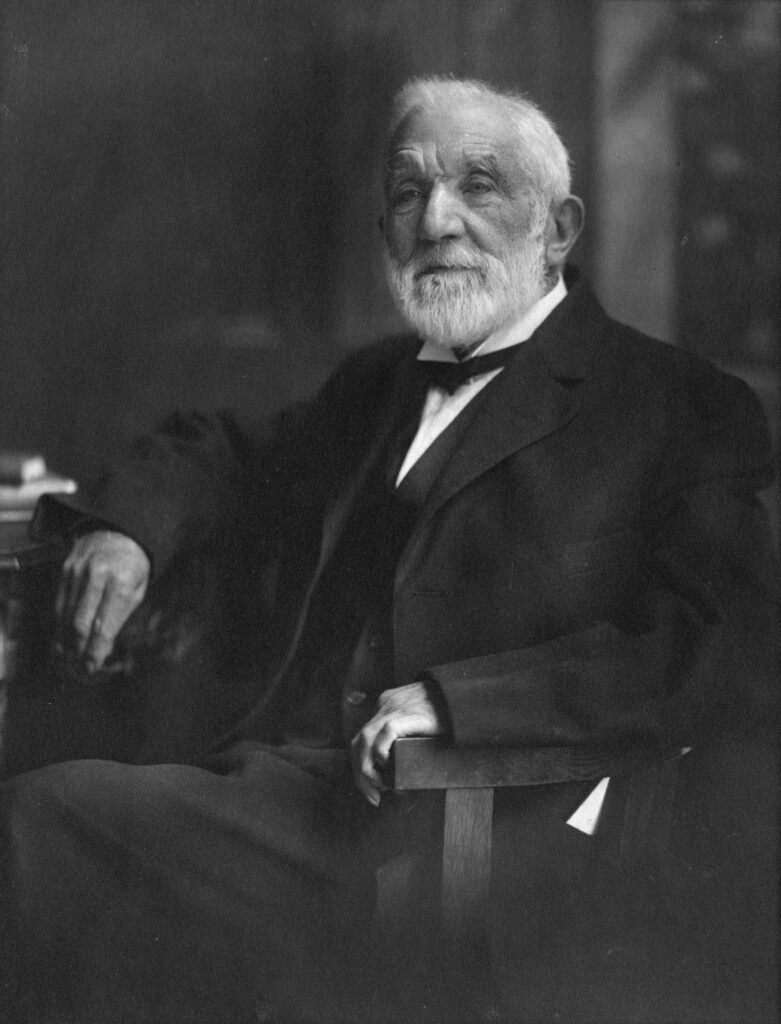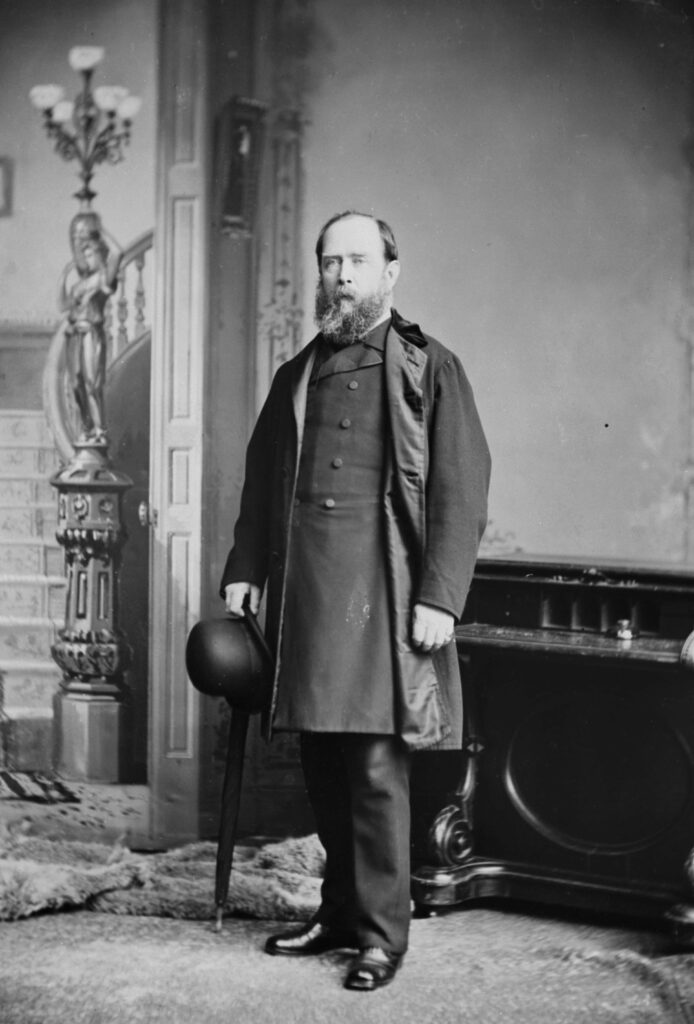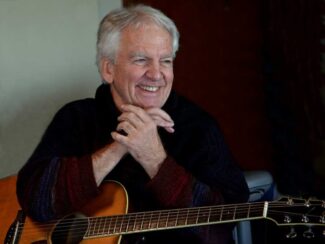An everyman’s BC history
When Heroes Become Villains: Helmcken, Trutch, Bowser, and the Streets, Lakes, and Towns Named After Them
by Jon Bartlett & Brian Robertson
Vancouver: New Star Books, 2024
$18 / 9781554202126
[Editor’s note: At time of review upload this title had been removed from the publisher’s website. Further, publisher Rolf Maurer announced on January 13, 2025 that New Star Books would wind down operations: Fall 2024 titles would be the last seen to press.]
Reviewed by Jeffrey Stychin
*

At the time of writing this review, tensions are high amongst the general population of BC, due to the provincial election. This fact has brought my attention to reflecting on the country I was born in and its history. I would consider myself completely ill-informed on the topics of reconciliation and the atrocities that have befallen Indigenous peoples. My grandparents are from Poland and Ukraine, and like them I have never felt connected to Canada as my home. I think for someone like myself and many others, we want those who came first to be recognized, validated and treated fairly in a land that is inherently theirs and was long before Europeans colonized and sequestered their people. It’s quite a struggle to articulate my sadness and frustration that such demoralizing and heinous treaties and acts were carried out and what a stain that leaves on Canada as a whole.

This book by Jon Bartlett and Brian Robertson met me with a lot of emotions surrounding the past that Canada seems to be fond of covering up. Our blighted and ignorant stance of events that have transpired, over which any reasonable individual would be up in arms and by which they would be frustrated, especially if they had nothing to do with such decisions. These events have made history and are still with us today, rooted in the back of our collective psyche. The book When Heroes Become Villains is just that, a collection of three main figures who were celebrated for their victories of control and segregation.

When Heroes Become Villains emphasizes three individuals’ history in this province.
First up is Helmcken:
John Sebastian Helmcken was a medical doctor and politician, well regarded as both in the nascent settler community of southern Vancouver Island. But his misdeeds have largely slipped under the historical radar. He served as Speaker of the Legislative Assembly of Vancouver Island and later of British Columbia, and apart from the governor, he was perhaps the foremost BC politician in his day. . . He had the opportunity, the power and the medical knowledge to help First Nations people infected with smallpox in Victoria in 1862, but instead played a key role in ensuring the spread of smallpox up and down the coast.
Next is Joseph Trutch:

Trutch, an ambitious English engineer and surveyor, was an early member of the legislative assembly who became the Colony of British Columbia’s first chief commissioner of lands and works. He used that position to radically diminish existing land agreements with various bands and to limit all future allotments to a mere fraction of what settlers could obtain under pre-emption regulations. After BC joined Confederation, he became the province’s first lieutenant-governor.
And finally, the last heavy hitter is:
William J. Bowser, BC premier Richard McBride’s fellow Dalhousie student, friend, attorney general and, ultimately, successor as premier of BC. It was he who sent troops into the Vancouver Island coal strike of 1912-14 and who, a year later, ordered an illegal roundup and imprisonment of Austro-Hungarians and Germans in the First World War. He was also responsible for coercing Squamish residents from their village on a Vancouver Indian reserve by forcing on them a patently illegal “purchase,” an action that not only alienated the reserve from the Squamish people but became for the next four decades a central factor in the province’s lack of co-operation with Canada regarding Indigenous land settlements.

This book outlines these men’s actions, detailing the things some people then found to be positive, in terms of developing businesses and resource allocation. However, on their journey to success by method of coverup and coercion they have not only destroyed lives, but ways of living, culture, and human rights.

I am in no place to voice my viewpoints in one way or another on their place in Canada’s history. I will say that it is my opinion that people should come together and share any place on Earth, and do all with love, not hate, or greed in the mind. If you’re looking for a great read on a stained history of this country, look no further than this concise and pointedly thorough anthology, and in the meantime, let us all think twice about the streets and buildings named after so called heroes, and remember those who were here before us and should be celebrated.
*

Jeffrey Stychin studied verse and poetry through music and art. He began writing as a means of catharsis and as a way to communicate with himself and others. A Vancouver barber by day, a poet by night, he currently resides with his thoughts and dreams in a quiet place full of trees. [Editor’s note: Jeffrey Stychin has recently reviewed books by Nellwyn Lampert, Pamela Oakley, Christian Smith, Gillian Turnbull (eds.), Jill Payne, Nathan Hellner-Mestelman, Lisa Hartley, Colin Upton, and Darren Groth for The British Columbia Review.]
*
The British Columbia Review
Interim Editors, 2023-26: Trevor Marc Hughes (non-fiction), Brett Josef Grubisic (fiction)
Publisher: Richard Mackie
Formerly The Ormsby Review, The British Columbia Review is an on-line book review and journal service for BC writers and readers. The Advisory Board now consists of Jean Barman, Wade Davis, Robin Fisher, Barry Gough, Hugh Johnston, Kathy Mezei, Patricia Roy, and Graeme Wynn. Provincial Government Patron (since September 2018): Creative BC. Honorary Patron: Yosef Wosk. Scholarly Patron: SFU Graduate Liberal Studies. The British Columbia Review was founded in 2016 by Richard Mackie and Alan Twigg.
“Only connect.” – E.M. Forster
2 comments on “An everyman’s BC history”
There are thousands of indigenous people alive today because their ancestors were inoculated for smallpox by Dr John Helmcken. Someone has been reading a conspiracy theory about Helmcken that has no solid foundation. This book is, in part, a case of what Alexander Pope would say: “A little knowledge is a dangerous thing”.
Thanks very much, Grant. Polarization into good and bad perhaps. There is a danger in some history titles of grabbing at low-hanging fruit with a predetermined conclusion in mind.